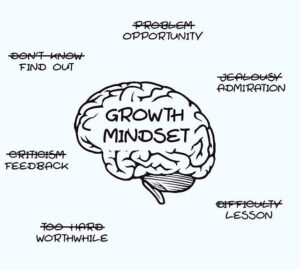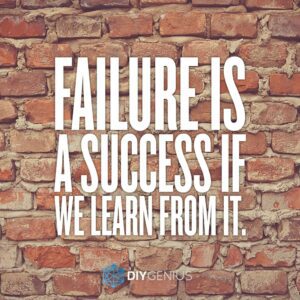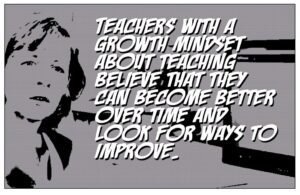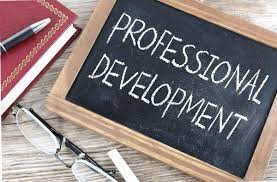In education today, the term “growth mindset” has gained significant traction. Growth mindset was coined by psychologist Carol Dweck, it refers to the belief that abilities and intelligence can developed through dedication and hard work.
I remember receiving Carol Dweck’s book, Mindset, after finishing my master’s degree. I was hungry to learn about how to be the best teacher possible and was heading into my first year teaching. I wanted to use the principles from the book to motivate my students to persevere through the difficult tasks but it also spoke to me as a new teacher. Those first few years of teaching are hard. The insights from the book reminded me that even though I was failing and struggling at many things, I was taking risks and trying new things and ultimately growing as a teacher.
Growth mindset is not just a buzzword; it’s a powerful concept that can transform teaching practices and enhance the learning experience for students. In this article, we’ll explore the importance of cultivating a growth mindset among teachers and how it can lead to improved professional development and student success.

Embracing Challenges and Learning from Failures
One of the key tenets of a growth mindset is the willing to embrace challenges and view failures as opportunities for learning and growth. In education, this means encouraging teachers to take risks in their classrooms and experiment with new teaching methods, even if they might not succeed immediately. When teachers adopt this approach, they become role models for their students, showing them that setbacks are not the end but rather steppingstones to success.
In my fourth-year teaching, I was asked to implement a new curriculum in my classroom. The information was given to me the day before school started, and I was asked to start it within the first week of school. I didn’t even have the books for the first unit yet nor had I ever read them. I embraced the challenge and the failures that came along with implementing that curriculum. Because of that I went on to train other teachers how to implement that curriculum, how to be a more effective English teacher, and so much about how students learn. Overcoming that first year was difficult but embracing the challenges and failures made me grow as an educator.

Developing Resilience in the Face of Adversity
Teaching is a demanding profession, and educators often face numerous challenges, from classroom disruptions to curriculum changes. Cultivating a growth mindset equips teachers with the resilience needed to navigate these obstacles. When educators believe in their ability to adapt and improve, they are better equipped to persevere through tough times, maintain a positive attitude, and continue making a difference in the lives of their students.
In today’s classrooms, teachers face classrooms filled with students with diverse learning needs. I had the privilege of working with a teacher, who instead of feeling overwhelmed, she embraced the challenge. She sought out professional development opportunities and collaborated with our team. Over time, her growth mindset and resilience not only improved her teaching skills but also transformed her classroom into a dynamic, inclusive space where students thrived.

Encouraging Continuous Professional Development
The key to growth mindset is that you aren’t static. Instead, you are commitment to continuous improvement. Teachers who embrace this mindset actively seek out opportunities for professional development. They understand that there is always more to learn and new ways to enhance their teaching skills, ultimately benefitting both their careers and their students’ education.
I have had the opportunity to work with many teachers as a professional development facilitator. I’ve seen the power of a teacher who is invested in professional learning and the difference it makes for their students. When you change the lens through which you view professional development from another thing to check off the list, to an opportunity improve your craft and benefit students in your classroom then you are embracing the growth mindset.

Cultivating a growth mindset among teachers is not just a pedagogical trend but a powerful philosophy that can elevate the quality of teaching and student learning. By embracing challenges, learning from failures, developing resilience, and committing to continuous professional growth, educators can create an environment where students are inspired to adopt a growth mindset themselves, setting them on a path to lifelong learning and success. So, let us foster a culture of growth mindset in education, where teachers lead the way, igniting the spark of curiosity and determination in the hearts of their students.
Want to learn more about what professional development opportunities we offer? Go to our Courses page to see our current offerings or click Let’s Talk to get more information.
